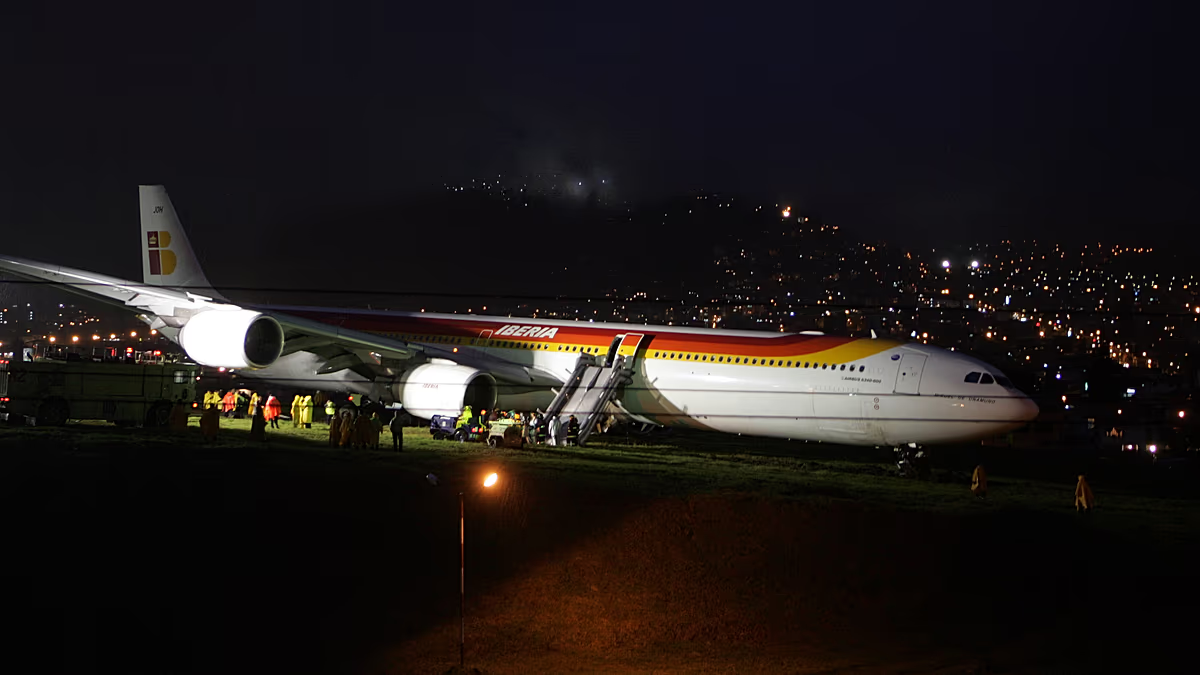Venezuelan Government Sanctions Airlines Amid Rising Regional Tensions
In a bold and defiant move, the Venezuelan government under President Nicolás Maduro has implemented sanctions against six major international airlines that suspended their operations to Caracas. The affected carriers—Iberia, TAP, Turkish Airlines, Avianca, Latam Colombia, and Gol—had all canceled their routes following a warning from the U.S. Federal Aviation Administration (FAA) issued on November 22. The FAA had advised commercial airlines to exercise “extreme caution” when flying over Venezuela and the southern Caribbean, citing potential safety concerns. The Venezuelan government responded by issuing a 48-hour ultimatum for these airlines to resume services, and when this deadline passed without compliance, the sanctions were immediately triggered. Interior Minister Diosdado Cabello’s statement perfectly encapsulated the government’s position: “The national government, in a sovereign decision, told the companies: if you do not resume flights in 48 hours, do not resume them any more. You keep your planes and we will keep our dignity.” This firm stance underscores Venezuela’s determination to maintain control over its airspace and assert its sovereignty in the face of external pressures.
The airline crisis unfolds against a backdrop of escalating military tension in the Caribbean, with the United States maintaining what Venezuelan officials describe as an “unprecedented” military deployment in the region. The U.S. has framed this buildup as part of “Operation Southern Spear,” a mission ostensibly launched in November to combat drug trafficking. Adding to the regional unease, the U.S. Air Force recently revealed that B-52H bombers conducted strike demonstrations in Caribbean waters this week—a move that many analysts interpret as a show of force directed at Venezuela. Further complicating the situation, two Dominican airports—San Isidro Air Base and Las Americas International Airport, both located in Santo Domingo—will be temporarily utilized to support these anti-drug trafficking operations. The timing and scale of these military maneuvers have raised eyebrows among international observers, with some questioning whether the drug trafficking narrative serves as a pretext for applying pressure on the Maduro government at a time of heightened geopolitical contestation in Latin America.
Despite the confrontational stance toward the airlines, some Venezuelan officials have attempted to strike a more conciliatory tone regarding the broader tensions with the United States. Executive Vice President Delcy Rodríguez called for diplomatic solutions rather than military escalation, stating plainly that “The way forward is not to send ships or make military threats.” Similarly, Attorney General Tarek William Saab expressed cautious optimism about the potential for direct talks between President Maduro and incoming U.S. President Donald Trump, who has publicly stated that his contacts with the Venezuelan leader are intended to “save many lives.” These mixed signals from different branches of the Venezuelan government suggest an internal debate about how best to navigate the complex relationship with Washington as the Trump administration prepares to return to power in January. The situation remains fluid, with several airlines—including Copa, Wingo, Boliviana de Aviación, Satena, and local carriers Avior and Conviasa—continuing to maintain their regular operations in Venezuela despite the tensions.
The Venezuelan government’s decision to sanction these international airlines reflects a broader pattern of asserting national sovereignty in the face of international pressure. For years, the Maduro administration has framed its policies as resistance against what it characterizes as imperialist interference, particularly from the United States. The language used by Interior Minister Cabello—juxtaposing the airlines keeping “their planes” against Venezuela keeping its “dignity”—resonates deeply with this narrative and appeals to nationalist sentiment within the country. This approach has been a consistent feature of Venezuelan foreign policy since the Hugo Chávez era, though critics argue that it sometimes comes at the expense of practical considerations. The current airline sanctions, for instance, risk further isolating Venezuela at a time when the country’s economy has shown modest signs of recovery after years of hyperinflation and contraction. The suspension of flights from major carriers could potentially impact Venezuela’s slow reintegration into global commerce and tourism networks, areas that the government had been attempting to revitalize.
The military dimension of this crisis highlights the complex geopolitical chessboard of the Caribbean, where various powers compete for influence. The U.S. military presence, including the deployment of strategic bombers and the use of Dominican facilities, represents a significant escalation in regional tensions. While ostensibly focused on drug interdiction, these moves occur within a broader context of U.S. policy toward Venezuela, which has included sanctions, diplomatic pressure, and occasional threats of military action over the past several administrations. The Venezuelan government has responded by strengthening ties with countries like Russia, China, Iran, and Cuba, creating a multipolar alliance structure that complicates U.S. strategic calculations. This dynamic has transformed what might otherwise be a relatively straightforward dispute over airline operations into a proxy for larger geopolitical rivalries. The FAA warning that precipitated the flight cancellations, while framed in terms of safety concerns, is viewed by many in Caracas as part of a coordinated pressure campaign rather than a purely technical assessment of aviation risks.
Looking ahead, the path to de-escalation remains uncertain. The potential for direct talks between Maduro and Trump represents one possible avenue for reducing tensions, though the unpredictable nature of both leaders makes outcomes difficult to forecast. Within Venezuela, the economic impact of reduced international air connections will likely be felt across multiple sectors, from tourism to business investment. For ordinary Venezuelans, particularly those with family connections abroad or who depend on international commerce, the airline sanctions represent yet another complication in an already challenging daily existence. Meanwhile, the military posturing in the Caribbean continues to raise concerns about the potential for miscalculation or unintended escalation. As Executive Vice President Rodríguez suggested, diplomatic channels rather than military demonstrations may offer the best hope for resolving these tensions. However, with both sides deeply entrenched in their positions and mutual suspicion running high, finding common ground will require significant political will and creative diplomacy from all parties involved in this increasingly complex standoff.


